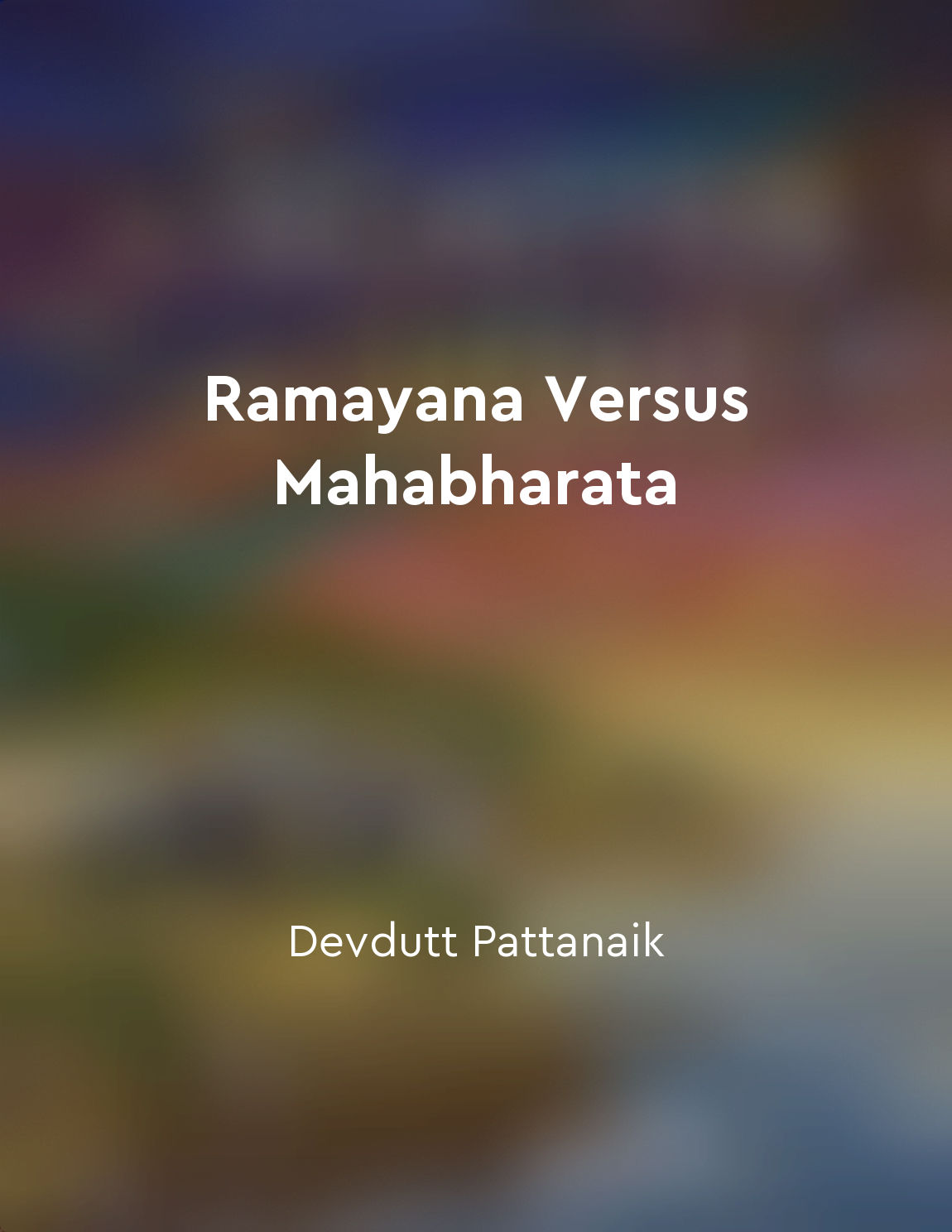Lessons in leadership from "summary" of The Mahabharata by Dwaipayana Vyasa
The Mahabharata offers a plethora of examples that serve as valuable lessons in leadership. Through the epic tale of the great Kurukshetra War, we witness the various qualities and behaviors exhibited by leaders, both good and bad. One of the key lessons emphasized throughout the narrative is the importance of integrity and righteousness in leadership. Leaders who adhere to moral principles and uphold dharma are portrayed as virtuous and ultimately successful. Conversely, those who deviate from dharma and succumb to greed, ego, or other vices are shown to face dire consequences. The character of Yudhishthira, the eldest of the Pandava brothers, exemplifies the qualities of a noble leader who remains steadfast in his righteousness even in the face of adversity. His unwavering commitment to truth and justice serves as a guiding light for others and earns him the respect and loyalty of his followers. On the other hand, the character of Duryodhana, the eldest of the Kaurava brothers, represents the pitfalls of unchecked ambition and deceit in leadership. His relentless pursuit of power and his willingness to resort to unethical means ultimately lead to his downfall and the destruction of his kingdom. Through these contrasting examples, The Mahabharata highlights the importance of ethical conduct and the consequences of actions in leadership. Another important lesson in leadership that the epic underscores is the value of humility and selflessness. Leaders who prioritize the welfare of their people over personal gain and ego are portrayed as more effective and respected. The character of Krishna, the divine charioteer and advisor to the Pandavas, embodies this quality of selfless leadership. His guidance and support are instrumental in the Pandavas' victory in the war, showcasing the impact of humble and service-oriented leadership.- The Mahabharata offers a rich tapestry of narratives that serve as timeless lessons in leadership. By examining the virtues and flaws of its characters, the epic imparts valuable insights into the qualities that define effective and ethical leadership. Through the trials and tribulations faced by its protagonists, The Mahabharata reminds us of the enduring principles that should guide leaders in their quest for a just and prosperous society.
Similar Posts
Draupadi's humiliation and vow for vengeance
The incident of Draupadi's humiliation in the court of Hastinapur is a crucial turning point in the epic Mahabharat. It is a mo...
Krishna as charioteer
In the great epic Mahabharat, we find a significant event where Lord Krishna takes on the role of a charioteer for Arjuna, one ...

Ramayana's Kumbhakarna is giant, Mahabharata's Jarasandha is powerful
In the world of Hindu mythology, the Ramayana and the Mahabharata are two of the most popular and enduring epics. Each epic is ...
Duryodhana's final stand
In the epic Mahabharat, the character of Duryodhana is one of great complexity and depth. He is portrayed as a proud and ambiti...

The nature of good and evil
The nature of good and evil is a complex and profound theme that runs through the epic tale of The Mahabharata. It delves into ...
The departure of Lord Krishna from the mortal world
Lord Krishna's departure from the mortal world is a significant event in the epic of Mahabharat. After the great Kurukshetra wa...
Kishkindha kandam serves as a beacon of hope and virtue
The 'Kishkindha kandam' in 'The Ramayana' shines as a guiding light of optimism and moral excellence. It illuminates the path o...

